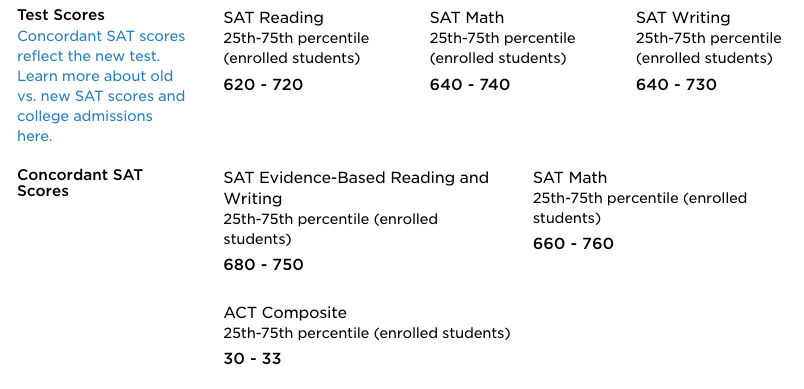
The highest possible score on the ACT is 36. The current average ACT score is 19.5.
A "good" ACT score depends on the colleges and universities you are considering. A score of 23 on the ACT is above the current national average and will make you a strong applicant at many universities, but it may fall below the average score for accepted students at more selective colleges. The higher your ACT score, the more options are open to you. Read on to learn more about ACT scores.
Average ACT Scores
The ACT is scored on a scale of 1–36, and there are 4 sections : English, Math, Reading, and Science. Each section is scored out of 36 points. Your composite ACT score is an average of your 4 section scores.
Here are the national average scores for each section for the high school classes of 2021 - 2023.
| Section | Avg ACT Score |
|---|---|
| English | 19 |
| Math | 19.4 |
| Reading | 20.5 |
| Science | 20 |
| COMPOSITE | 19.9 |
Source: ACT
If you are close to these averages you will likely be accepted into a considerable number of colleges and universities, but may not be considered at more selective schools.
Read More: Which ACT Scores Do Colleges Care About?
Above Average ACT Scores
Above average ACT scores will improve your chances of getting into a more selective school. Check out this sample list of average ACT scores for a handful of selective colleges.
| School | ACT Composite Score (25th–75th percentile) | Acceptance Rate |
|---|---|---|
| Columbia University | 34–35 | 4% |
| Harvard College | 33–36 | 7% |
| Massachusetts Institute of Technology | 34–36 | 7% |
| New York University | 32–35 | 13% |
| Princeton University | 33–35 | 4% |
| University of California—Berkeley | 33–35 | 4% |
| University of Pennsylvania | 33–35 | 9% |
| Yale University | 33–35 | 5% |
Below Average ACT Scores
Scores below a 15 on the ACT are considered low at just about any four-year college. You can overcome low scores with a great GPA or an outstanding college application. But even if you're accepted, the school may ask you to take some remedial courses before enrolling.
Good ACT Scores for YOUR Goals
A good score on the ACT is one that puts you within the average range of scores for the colleges of your choice. Check out the ACT score ranges for the schools on your wish list, and see how your scores compare. Use our college search to find the online profiles of schools you want to research. Find your dream school's profile and click over to the "Admissions" tab.
Sample College Profile

Our college profiles report the middle 50% range of test scores for entering first-year students. Do your scores fall well within the range? That school could be a good match! Do your scores fall in the lower end, or even below, the school's average range? Don't be discouraged! Admission to that school is still possible with some ACT prep and a strong overall application.
Higher ACT Scores Mean More Options
Unless you pulled a perfect 36, you can always improve. Your ACT score could even help you qualify for college merit scholarships. Even if your dream school is test optional, you may want to consider taking the test for that reason. Not sure what your target ACT score should be? Our college counselors can help you with testing plans and matching your scores to schools.
Where Do You Stand?
Want to talk about your ACT scores in more detail and figure out what comes next? We can help. Our ACT experts will go over your personal score report and help you determine what the next step should be. Call us at 1-800-2REVIEW.
Explore Colleges For You
Connect with our featured colleges to find schools that both match your interests and are looking for students like you.
Get Started on Athletic Scholarships & Recruiting!
Join athletes who were discovered, recruited & often received scholarships after connecting with NCSA's 42,000 strong network of coaches.
Best 390 Colleges
168,000 students rate everything from their professors to their campus social scene.



